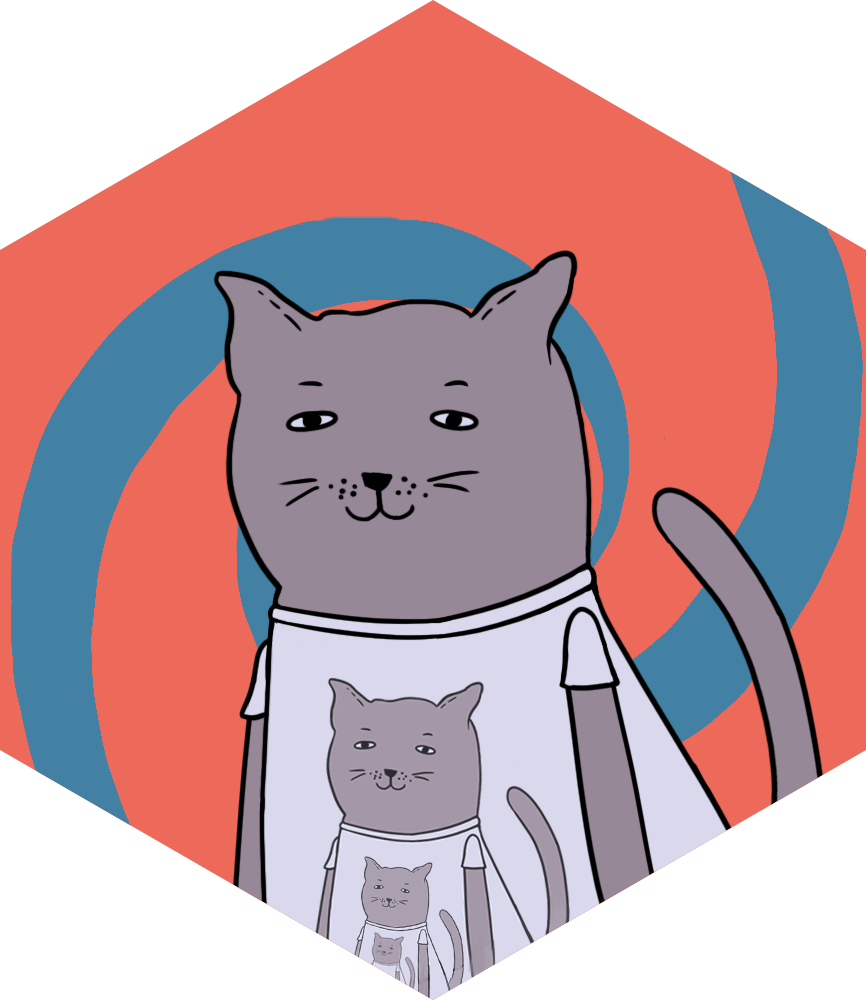Droste is a recursion library for Scala.
SBT installation
Select a tagged release version (x.y.z) and then add the following
to your SBT build:
libraryDependencies += "io.higherkindness" %% "droste-core" % "x.y.z"Droste makes it easy to assemble morphisms. For example, calculating
Fibonacci values can be done with a histomorphism if we model natural
numbers as a chain of Option. We can easily unfold with an
anamorphism and then fold to our result with a histomorphism.
import higherkindness.droste._
import higherkindness.droste.data._
val natCoalgebra: Coalgebra[Option, BigDecimal] =
Coalgebra(n => if (n > 0) Some(n - 1) else None)
val fibAlgebra: CVAlgebra[Option, BigDecimal] = CVAlgebra {
case Some(r1 :< Some(r2 :< _)) => r1 + r2
case Some(_ :< None) => 1
case None => 0
}
val fib: BigDecimal => BigDecimal = scheme.ghylo(
fibAlgebra.gather(Gather.histo),
natCoalgebra.scatter(Scatter.ana))fib(0)
// res0: BigDecimal = 0
fib(1)
// res1: BigDecimal = 1
fib(2)
// res2: BigDecimal = 1
fib(10)
// res3: BigDecimal = 55
fib(100)
// res4: BigDecimal = 354224848179261915075An anamorphism followed by a histomorphism is also known as a dynamorphism. Recursion scheme animals like dyna are available in the zoo:
val fibAlt: BigDecimal => BigDecimal =
scheme.zoo.dyna(fibAlgebra, natCoalgebra)fibAlt(0)
// res5: BigDecimal = 0
fibAlt(1)
// res6: BigDecimal = 1
fibAlt(2)
// res7: BigDecimal = 1
fibAlt(10)
// res8: BigDecimal = 55
fibAlt(100)
// res9: BigDecimal = 354224848179261915075What if we want to do two things at once? Let's calculate a Fibonacci value and the sum of all squares.
val fromNatAlgebra: Algebra[Option, BigDecimal] = Algebra {
case Some(n) => n + 1
case None => 0
}
// note: n is the fromNatAlgebra helper value from the previous level of recursion
val sumSquaresAlgebra: RAlgebra[BigDecimal, Option, BigDecimal] = RAlgebra {
case Some((n, value)) => value + (n + 1) * (n + 1)
case None => 0
}
val sumSquares: BigDecimal => BigDecimal = scheme.ghylo(
sumSquaresAlgebra.gather(Gather.zygo(fromNatAlgebra)),
natCoalgebra.scatter(Scatter.ana))sumSquares(0)
// res10: BigDecimal = 0
sumSquares(1)
// res11: BigDecimal = 1
sumSquares(2)
// res12: BigDecimal = 5
sumSquares(10)
// res13: BigDecimal = 385
sumSquares(100)
// res14: BigDecimal = 338350Now we can zip the two algebras into one so that we calculate both results in one pass.
val fused: BigDecimal => (BigDecimal, BigDecimal) =
scheme.ghylo(
fibAlgebra.gather(Gather.histo) zip
sumSquaresAlgebra.gather(Gather.zygo(fromNatAlgebra)),
natCoalgebra.scatter(Scatter.ana))fused(0)
// res15: (BigDecimal, BigDecimal) = (0, 0)
fused(1)
// res16: (BigDecimal, BigDecimal) = (1, 1)
fused(2)
// res17: (BigDecimal, BigDecimal) = (1, 5)
fused(10)
// res18: (BigDecimal, BigDecimal) = (55, 385)
fused(100)
// res19: (BigDecimal, BigDecimal) = (354224848179261915075, 338350)Droste includes athema, a math expression parser/processor, as a more extensive example of recursion schemes.
A substantial amount of Droste's code is a derivation-- or an alternative encoding-- of patterns pioneered by others. Droste has benefited from the excellent work in many other recursion libraries, blog posts, academic papers, etc. Notably, Droste has benefited from:
Thank you to everyone involved. Additionally, thanks to Greg Pfeil (@sellout) for answering my random questions over the last few years while I've been slowly learning (and using recursion) schemes.
Copyright the maintainers, 2018-present.
All code is available to you under the Apache License, Version 2.0, available at http://www.apache.org/licenses/LICENSE-2.0.
Logos provided by the very excellent @impurepics.
Please be advised that I have no idea what I am doing. Nevertheless, this project is already being used for real work with real data in real life.


